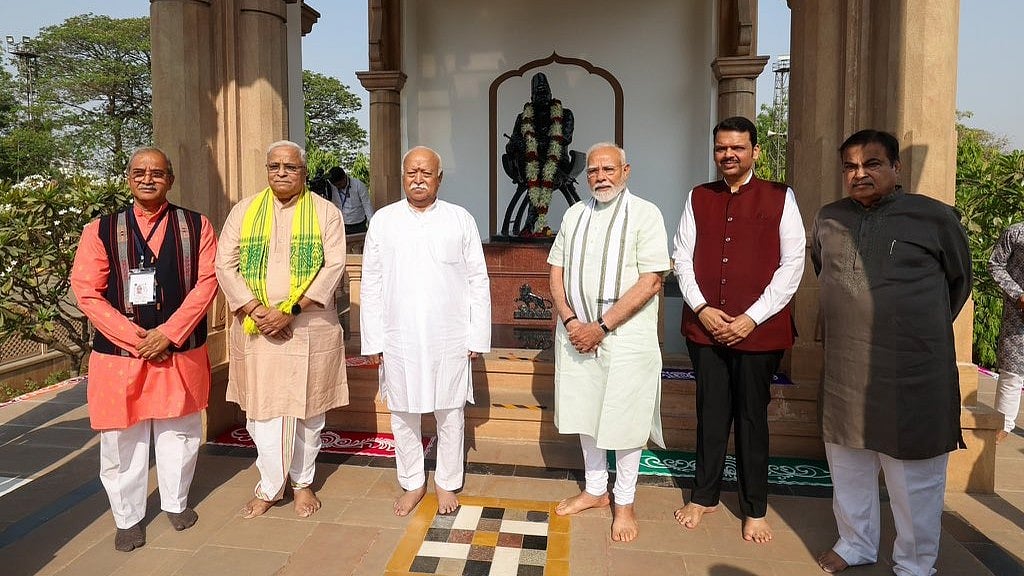Narendra Modi’s first visit to the Rashtriya Swayamsevak Sangh headquarters in Nagpur as Prime Minister, where he lavished praise on the Sangh as the ‘banyan tree’ of India’s cultural consciousness, is being seen as a successful attempt to taper over the differences that have cropped up between the Bharatiya Janata Party and the parent organisation. It is also widely believed that Modi sought the RSS approval for the next BJP president. In the nearly 11 years since Modi took over as PM with a sweeping majority and the BJP gained immense ground, becoming the world’s largest political party, ties with the RSS have become strained. During the 2024 election campaign, a stray comment by party president JP Nadda, that the BJP was now a self-sufficient party and did not need the backing of the Sangh, did not go down too well in Nagpur. It is an open secret that the RSS withdrew from the poll campaign, and the result was a wholly underwhelming performance by the saffron party. The BJP, which was touted to win 400-plus seats, had to be content with only 240 seats, falling short of a majority by 30 seats. It was only by tying up with Chandrababu Naidu’s Telugu Desam Party and Nitish Kumar’s JD-U that the BJP was able to cobble together a government at the centre. Analysts attributed the BJP’s poor performance to the RSS’ disinterest in electioneering, especially in the Hindi heartland. After the election, Sangh chief Mohan Bhagwat’s pointed remarks against a personality cult and assuming divine attributes for oneself were seen as an attack on Modi, who had claimed during the campaign that he was non-biological and had been brought to earth by God to fulfil a divine purpose. In a swift attempt at damage control, the BJP appealed to the RSS to aid the party in the Haryana and Maharashtra Assembly elections. The outcome of these polls proved that the BJP’s ideological parent did indeed hold sway over a vast swathe of the electorate, as the party did stupendously well, defying pollsters and analysts.
Now the BJP has another task ahead of it: to elect a party president to replace Nadda, who has been heading the organisation since 2020 and is now holding dual posts as a minister in the Union Cabinet, too. Modi’s visit to Nagpur is being seen as a bid to arrive at a consensus on the BJP president’s name. The RSS is keen on someone who will not only do the bidding of the Modi-Amit Shah duo. Many names are doing the rounds, such as Dharmendra Pradhan, Bhupender Yadav, etc., but they are all seen as Modi loyalists. There is some talk of bringing in someone from the south, but it remains to be seen who will ultimately bag the prize. In the interim, Modi has gone out of his way to emphasise his ideological moorings with the RSS. Even in his interview with US podcaster Lex Fridman, the PM spoke of his RSS roots and that he was proud to be a swayamsevak. Earlier, too, there have been periods of tensions between the BJP and RSS, notably during the Atal Behari Vajpayee era. LK Advani fell out with the RSS over his praise for Jinnah. Ahead of the 2014 polls, the Sangh openly backed Modi instead of Advani for the PM’s post. The rest, as they say, is history.
